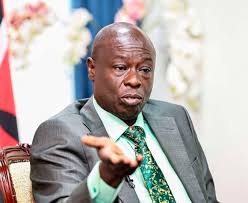The High Court has declined to grant orders stopping Parliament from proceeding with an impeachment motion against Deputy President Rigathi Gachagua.
The motion, filed by former Kakamega Senator Cleophas Malala, sought to bar the National Assembly and Senate from debating or considering any motion aimed at removing Gachagua from office.
Malala’s petition was based on the argument that both Houses do not meet the Constitution’s two-thirds gender rule, thus violating constitutional provisions.
However, Justice Bahati Mwamuye dismissed the petition, directing Parliament to respond to the accusations by Thursday, October 3, 2024.
Malala has been granted until Friday, October 4, to submit his rejoinder, with the matter set for mention on October 7.
As the impeachment process moves forward, National Assembly Majority Leader Kimani Ichung’wah confirmed that the motion will be tabled in the House on Tuesday at 2:30 pm.
To proceed, the motion requires the backing of at least 233 Members of Parliament.
Reports indicate that by Sunday, 302 MPs had already appended their signatures in support of the motion, far exceeding the required threshold.
Deputy President Gachagua faces numerous charges, including allegations of violating Article 10 of the Constitution.
His accusers claim his public remarks have been inciteful, reckless, and inflammatory, potentially inciting ethnic hatred.
Additional accusations against Gachagua include breaches of Articles 147, 148, 174, 186, and 189, which outline the responsibilities and conduct of the Deputy President as the President’s principal assistant.
Gachagua is also expected to defend himself against claims of corruptly acquiring assets using public funds.
The properties in question are reportedly located in Nyeri, Nairobi, and Kilifi counties.
If the impeachment motion passes in the National Assembly, Speaker Moses Wetangula will be required to notify Senate Speaker Amason Kingi within two days for further action.
The case has sparked significant political interest as the impeachment process could have major implications for the country’s leadership structure.


